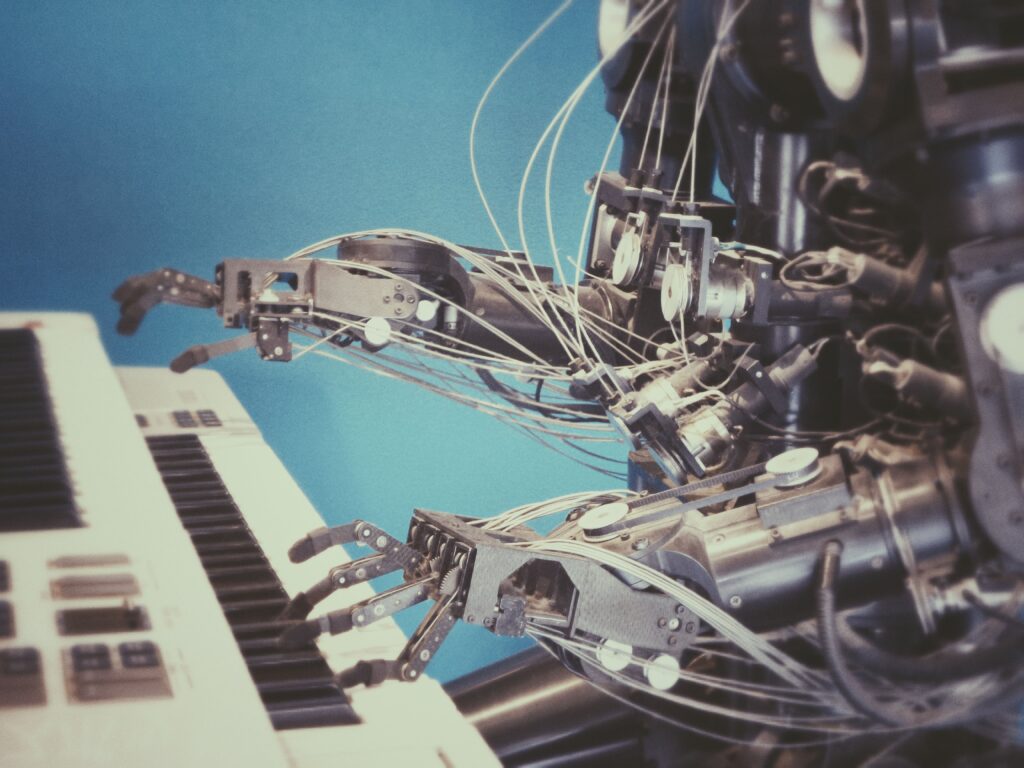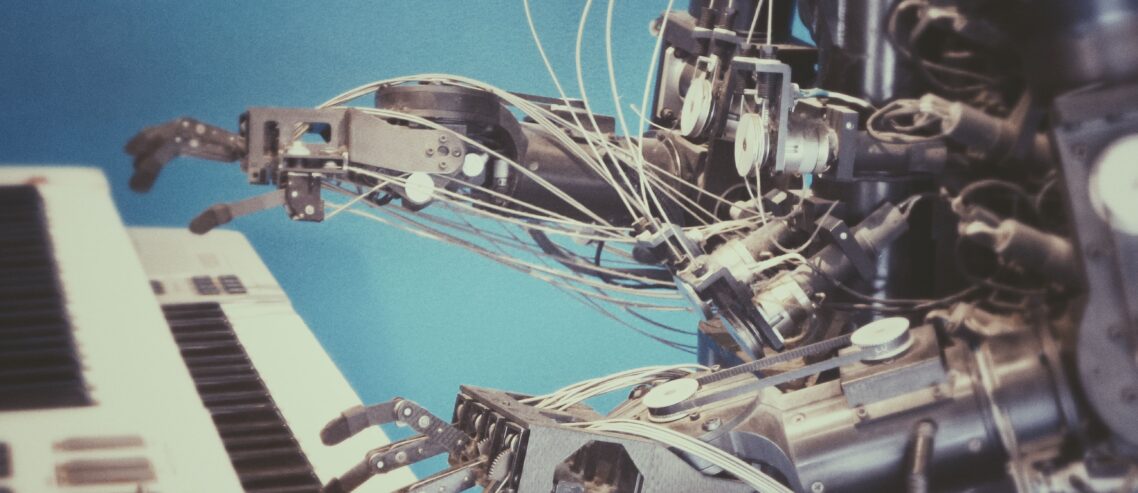How Artificial Intelligence Boosts Hosting & Performance

Photo by Possessed Photography
Artificial intelligence (AI) is transforming the web hosting industry. As AI capabilities advance, web hosts are leveraging this technology to optimize website performance and deliver more reliable and faster experiences to users.
Website speed is becoming increasingly important. Studies show that even minor delays can lead to reduced engagement, lower conversion rates, and revenue losses. For instance, Google research found that 53% of mobile site visitors leave a page that takes longer than 3 seconds to load. In particular, for e-commerce sites, page load times directly impact sales and customer satisfaction.
AI is a well suited topic to help web hosting providers boost performance in key areas. Machine learning algorithms can automate and enhance resource allocation, intelligently routing traffic and provisioning server capacity in real-time based on fluctuations in demand. AI can also analyze usage patterns to proactively mitigate future bottlenecks. On the frontend, AI-powered web optimization can maximize page loading speeds by optimizing code, images, web fonts, and other elements.
Overall, AI-driven web hosting offers significant advantages in reliability, scalability, and speed over traditional approaches. As competition increases in the hosting market, AI may provide the capabilities needed to differentiate offerings. The ability to leverage AI for better performance monitoring, traffic management, and optimization will be key for hosts to deliver excellent customer experiences and stand out from rivals. Adopting intelligent systems to boost website speed and uptime will only grow in importance for hosting providers in the years ahead.
There are a number of companies that are using AI to improve web hosting performance. For example, Google Cloud uses AI to optimize the delivery of web content by predicting traffic patterns and caching content closer to users.
Here are some of the specific ways that AI is being used to optimize web hosting performance:
Analyzing user data to identify areas for improvement
AI plays a pivotal role in collecting, analyzing, and interpreting vast amounts of data related to website traffic and user behavior, thereby providing crucial insights for optimization. In website traffic analysis, AI accurately monitors user patterns such as peak usage times, most visited pages, and origin of traffic. This comprehensive monitoring enables businesses to adjust their strategies accordingly, boosting site engagement and enhancing visitor retention. Furthermore, AI scrutinizes how users interact with the website, assessing metrics like click-through rates, time spent on individual pages, user navigation patterns, and bounce rates. The insights gathered allow businesses to understand user preferences and improve the overall user journey, offering a more personalized and engaging experience.
By continuously monitoring analytics and running real-time optimization experiments, the AI system can learn over time what changes provide the biggest boosts in speed and engagement. Website owners can then rapidly iterate and enhance performance using the AI-generated insights. This data-driven approach allows hosts and developers to stay ahead of performance issues and offer users consistently fast, smooth web experiences.
Automating tasks that can improve performance
AI can be used to automate tasks that can improve website performance, such as image compression, code optimization, and caching. This can free up human resources to focus on other tasks, and it can also help to improve performance by eliminating human errors. For web hosts, AI tools can automatically compress image file sizes, minify CSS and JavaScript code, and leverage browser caching to accelerate page loads. These optimization best practices are essential but often neglected due to the effort required.
By using computer vision and natural language processing, AI systems can crawl through website code and assets to identify areas for improvement. The AI will compress images to smaller file sizes without sacrificing quality, removing unnecessary characters and whitespace from code files to reduce their size, and configure cache settings to store static assets in the user’s browser for faster loads.
These automated enhancements enable web pages to load much faster. The AI requires no human supervision and can continuously optimize and monitor site performance. Web developers are freed from repetitive manual optimization tasks so they can focus on creating new features and content.
Predicting future performance needs
Looking ahead to foresee potential performance issues is an area where AI excels. By examining historical trends in website traffic, usage patterns, and load metrics, AI algorithms can make accurate predictions about future needs. This gives web hosts the ability to proactively scale infrastructure up or down to match projected demand.
For example, an e-commerce site that sees large spikes in traffic around the holidays can leverage AI to analyze traffic surges from previous years. The AI will factor in growth projections to determine the expected server capacity and bandwidth required for the next holiday season. It will identify when and where infrastructure should be expanded to adequately support upcoming traffic without slowdowns.
AI predictive analytics remove guesswork around provisioning. Intelligently anticipating needs allows web hosts to right-size server and network resources so they can easily handle usage spikes during viral events, promotions, or seasonal trends. Websites stay speedy and responsive at all times instead of crashing during peak loads.
By continuously recalibrating forecasts and resource allocation based on the latest performance data, AI keeps forecasting and provisioning models accurate and optimal. Web hosts can act confidently knowing they have precisely the right hosting infrastructure to deliver excellent user experiences now and in the future.
Conclusion
The web hosting landscape is rapidly evolving thanks to advancements in artificial intelligence (AI). As the technology continues maturing, AI-driven solutions will become indispensable for providers seeking to maximize website performance.
Companies that fail to adopt AI for optimizing hosting infrastructure and services will likely struggle to keep pace with those leveraging intelligent systems. The competitive advantage gained by using AI for automation, real-time analytics, and predictive modeling is simply too significant to ignore.
Companies like Google Cloud are already leveraging AI to optimize web content delivery, providing a clear testament to AI’s transformative potential in the web hosting industry. With increasing competition, the ability to integrate AI for enhanced performance monitoring, traffic management, and optimization will be the defining factor that sets apart successful web hosts.
Going forward, we can expect AI to permeate web hosting at every level. Behind the scenes, machine learning will help companies better understand customer needs, forecast demand, automate tasks, and self-heal systems. For end users, AI will deliver continually optimized and personalized digital experiences.
Web hosting powered by artificial intelligence marks the next frontier of innovation for the industry. Savvy providers will embrace AI now to get ahead of the curve, while laggards risk being left behind. With AI promising substantial gains in speed, reliability, and efficiency, the technology will be instrumental for hosts competing in today’s fast-paced digital landscape.

Comments
Comments for this post are closed.